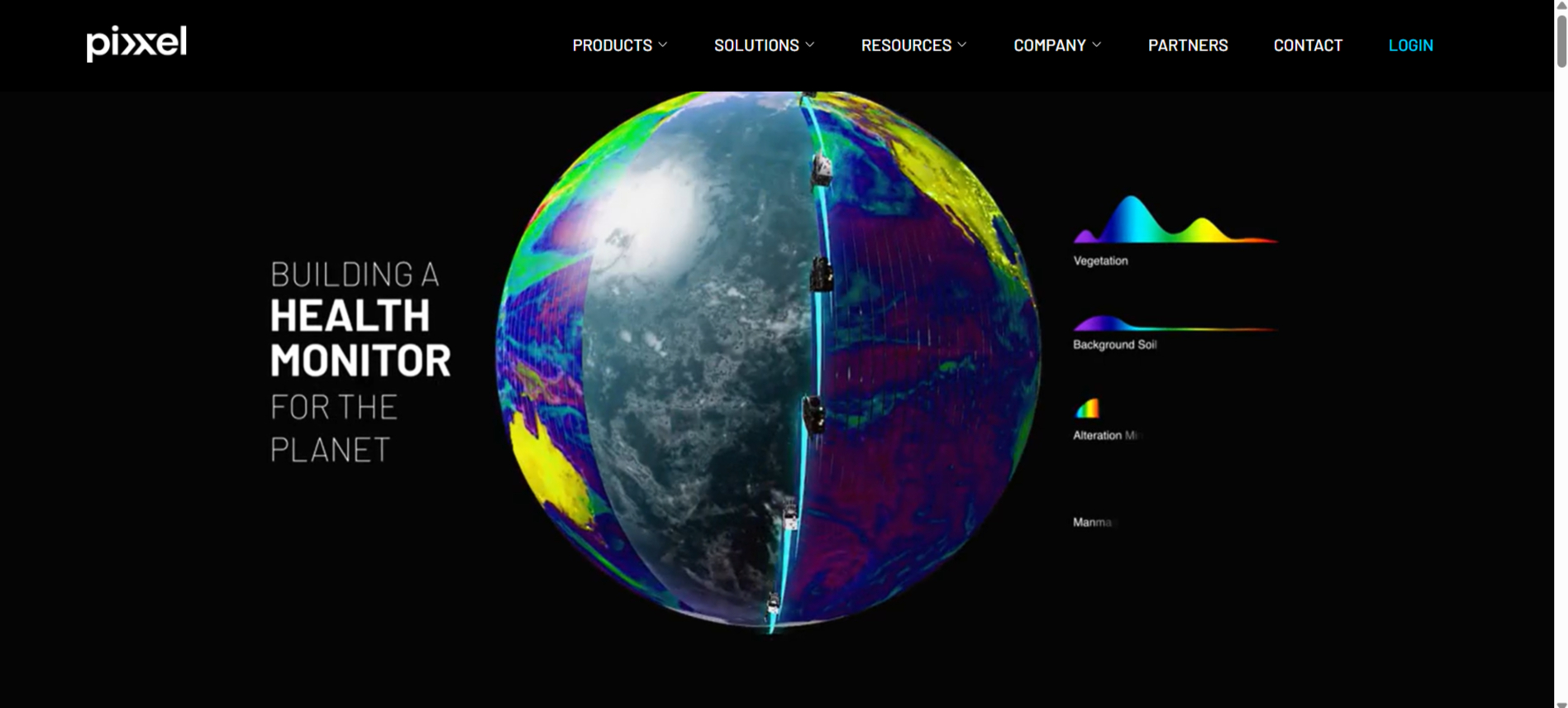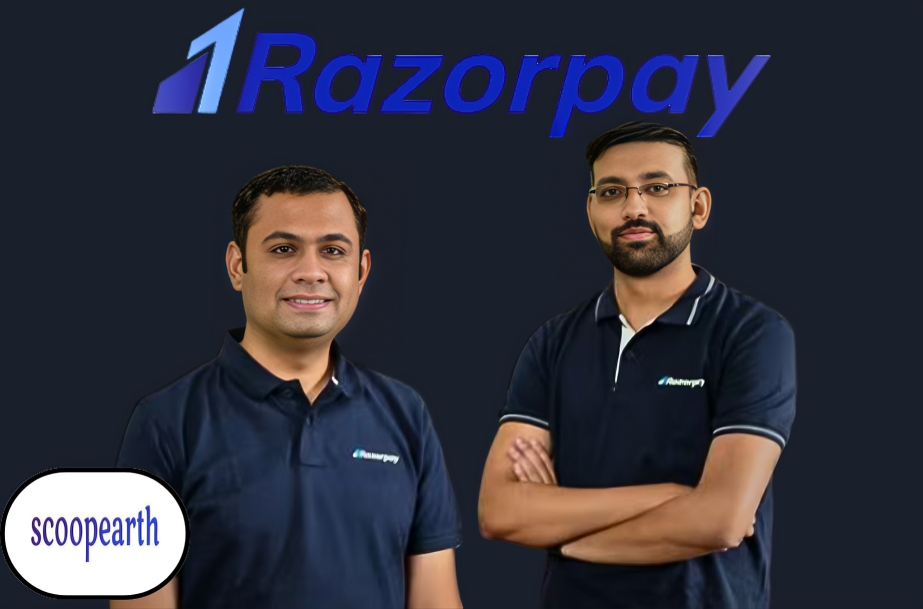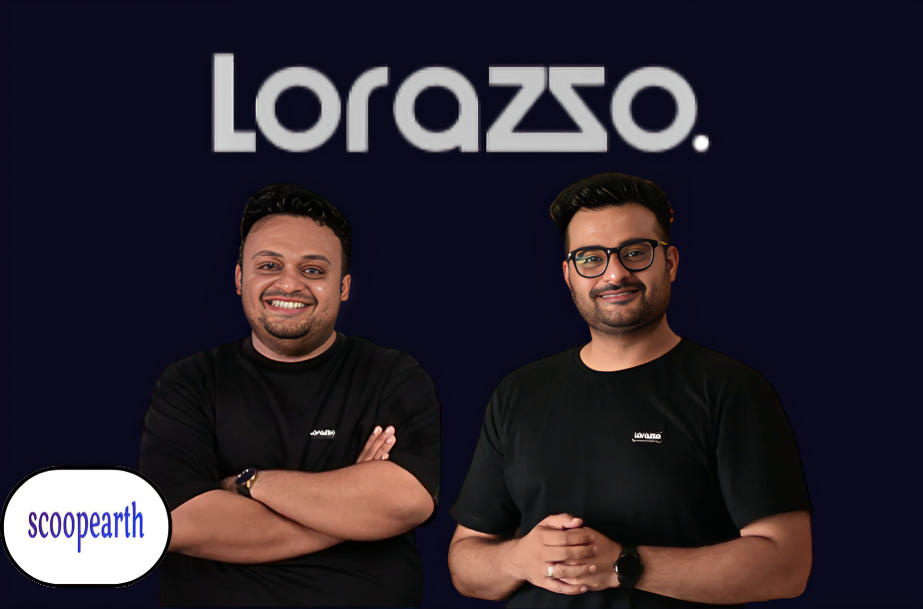The Rise of Pixxel: India’s New Space Race Player

SUMMARY
Introduction:
In the fast-paced space tech market, a homegrown space tech startup, Pixxel, is all set to compete with the global giants. The company has developed the hyperspectral imaging technology that is changing how we observe the Earth. The startup was founded in 2019 by Awais Ahmed and Kshitij. The company builds satellites to capture detailed images that can be used to monitor climate change and manage natural resources. Pixxel addresses pressing social issues such as climate change. In this article, we take a look at the Pixxel journey, its obstacles, and how to transform the Indian space industry.
What is different about Pixxel?
Pixxel’s unique hyperspectral imaging cameras on satellites capture light across hundreds of wavelengths, unlike a regular camera. The company’s technology surpasses the abilities of traditional multispectral satellites. This enables quick identification of minute changes, such as early crop disease or methane leaks. Faster predictions allow users to see data and make more insightful choices.
Pixxel offers affordable and faster services. Pixxel offers a user-friendly platform that makes the data accessible to everyone; it can be understood regardless of tech knowledge. This data helps the sectors, including agriculture and mining, making Pixxel distinct from others. In addition, Pixxel’s Firefly constellation satellite boasts 5-meter resolution with a 40km swath. Which makes it the highest for any commercial hyperspectral tech. The startup maintains its position as a leader in smart, sustainable space tech.
Founders’ life and education:
Awais Ahmed is the CEO of Pixxel. He came from a simple family background and grew up in India. Awais pursued his studies at BITS Pilani. The more advanced engineering got him interested in space, as he developed several projects during his time in college. He served as a founding member of Team Hyperloop India; the only Indian team to make it to the finals of the SpaceX Hyperloop Pod competition in 2017.
They traveled to the SpaceX headquarters in California to design and test their pod. This hands-on experience exposed Awais to advanced space technology. He also found the gap in satellite imagery for environmental monitoring. Kshitij Khandelwal, the CTO, also completed his engineering from BITS Pilani, where he met Awais. Kshitiji was interested in electronics and software technology from a very young age. Kshitiji and Awais both had a common vision to use technology and solve real-world problems.
It quickly became clear to them that existing satellite images were not detailed enough for detailed analysis, like monitoring pollution or the health of crops. They noticed that these images did not have as much spectral information as desired for analysis. At the age of 20, they dropped out of BITS Pilani and started Pixxel to bridge the gap. Their backgrounds in engineering and hands-on experience from projects fueled by their commitment to create affordable space solutions turned Pixxel into a space innovation.
The journey of Pixxel
Pixxel started as a little idea in an office in Bengaluru, but its promising solutions allowed it to scale quickly into becoming a global space business. In 2019, the startup joined an accelerator program in the US, where it was able to meet experts and get initial funding. Back then, they were the only Asian team.
The money enabled them to construct and launch test satellites such as Anand and Shakuntala. These deployments were supported by India’s space agency, ISRO, and international partners on SpaceX rockets. After releasing the first hyperspectral images to the public, Pixxel secured its deal with the U.S. National Reconnaissance Office. They develop tools to analyze satellite data easily. This data is useful for farmers, governments, and companies.
Challenges and struggles
Every business comes with struggles; starting a startup like Pixxel was not easy, especially with the intense competition from well-established space giants. The regulatory approvals in India are slower, so getting permissions and satellite launching have been delayed. High satellite costs due to the use of high-tech equipment and the global pandemic slowed down supplies.
They solved this issue by in-house manufacturing. Another challenge was to compete against big international firms to secure a deal, but Pixxel’s innovative ideas helped them go through such conditions. Technical issues in early tests were stressful, but they led to better designs. They solved complicated problems through collaboration with ISRO. Through consistency, hard work, and smart planning, Pixxel turned these challenges into opportunities.
How does it impact India’s Space industry?
In the country that was dominated by the government agency, a private firm, Pixxel, emerged to reshape India’s space industry. Pixxel is one of the first private startups to send out its own commercial satellites. The startup brought its new ideas while boosting the sector’s valuation. The Indian space tech sector is now projected to reach $44 billion in the next five years.
The government policies are now encouraging private firms to enter space. This step will help to create more jobs and new opportunities, while boosting the economy. Having homegrown startups will also decrease our dependency on foreign tech, keeping the country’s data safe within its boundaries. Pixxel became an inspiration for many other entrepreneurs, leading to the birth of more startups in the space tech sector. Pixxel is helping India become a major player in the worldwide space race.
The future and road ahead:
Pixxel aims to deploy over 24 satellites by 2027 for daily global coverage and have a full group of satellites in orbit soon. The company targets 500 million to 1 billion USD of the $19 billion worth satellite imagery market. The company plans to add more features, like AI for faster analysis, and collaborate with big tech firms like Google. Pixxel is set to lead the space sector. The company focuses on solving real-world problems for India’s brighter future in the space industry.
Conclusion:
The story of Pixxel teaches entrepreneurs how to have a clear vision before starting a business. Pixxel started from a small office in Bengaluru and became a key figure in India’s space race. The company uses hyperspectral technology to bridge the gap in the space sector while helping to boost India’s economic growth and benefiting the global community. India is also targeting a space station by 2035, and Pixxel is in line to play a primary role behind the mission. The article referred to Pixxel’s journey, its impact on the country’s ecosystem, and the inspiration behind the inception of Pixxel.
FAQs:
What is Pixxel?
A private space startup building small satellites that collect advanced Earth-observation data.
What technology does Pixxel use?
Hyperspectral imaging — sensors that capture many narrow light bands for detailed environmental analysis.
Why does Pixxel matter for business?
Its data helps companies and governments make faster, cheaper decisions in agriculture, mining, energy, and the environment.
How did Pixxel start?
It began as a small team of engineers who turned a college/early-career project into a commercial business.
What products does Pixxel offer?
Imagery subscriptions, monitoring services, and custom analytics delivered as actionable reports and dashboards.
How is Pixxel different from regular satellite imagery?
Hyperspectral data reveals chemical/biological signals that ordinary photos can’t detect.
Who are the likely customers?
Farmers, miners, energy firms, environmental agencies, insurers, and analytics integrators.
What are the main challenges for Pixxel?
Scaling satellite production, securing launches, ensuring data quality, and converting users into paying customers.
How do customers access the data?
Via on-demand downloads, subscription monitoring services, or tailored analytics projects integrated into workflows.
Why is Pixxel different from other space companies?
Its focus on affordable, high-spectral-resolution imaging sets it apart, enabling precise insights for sustainability and industry needs.
Note: We at scoopearth take our ethics very seriously. More information about it can be found here.
















